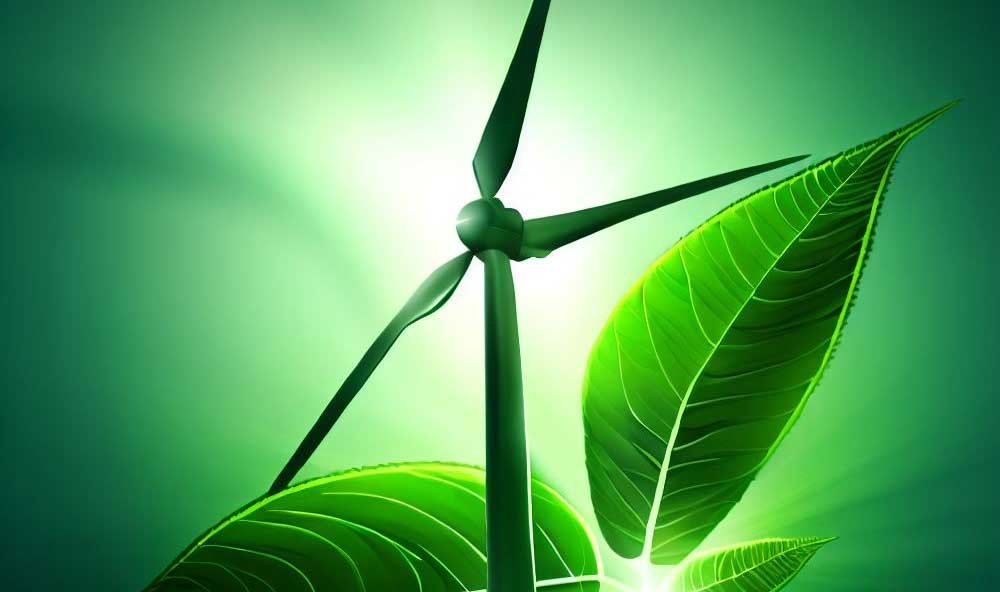The world is moving towards a period where energy demand is increasing, and environmental issues are being emphasized more. The environmental effects of traditional fossil fuels and sustainability concerns are accelerating the development of green energy sources. The year 2023 emerges as a significant indicator of this transformation because green energy investments are now beginning to surpass fossil fuels.
The Increasing Popularity of Green Energy Investments
In recent years, interest in green energy investments has rapidly grown worldwide. This interest has led to an increase in investments in clean energy sources such as solar energy, wind energy, hydroelectric power, and other clean energy sources. The popularity of these investments stems from several factors.
Environmental Awareness: Climate change and environmental issues have increased people’s interest in clean energy. Since the combustion of fossil fuels leads to the emission of greenhouse gases, green energy sources have a lower environmental impact. Their ability to produce energy without emitting carbon dioxide and other harmful emissions into the atmosphere is a crucial aspect of environmental sustainability. Therefore, the use of green energy sources instead of fossil fuels contributes to reducing major environmental problems such as climate change and air pollution.
Economic Benefits: Green energy sources can be more economical in the long run. Solar and wind energy systems can reduce operating costs and increase energy independence. Solar panels and wind turbines are low-maintenance systems once installed. Additionally, local energy production and distribution can help control energy prices, allowing businesses and households to save on energy costs. Green energy projects also have the potential to create new business opportunities and employment, supporting economic growth.
Sustainability: Fossil fuels are a finite resource and face the risk of depletion. In contrast, green energy sources are renewable and sustainable. Resources like sunlight, wind, and water are limitless and can be naturally replenished. Therefore, green energy sources play a critical role in ensuring energy security for future generations. They also guarantee a stable and continuous energy supply.

The Scale of Green Energy Investments
As of 2023, green energy investments are revolutionizing the energy sector. These investments encompass various technologies, including solar panels, wind turbines, hydroelectric plants, and other clean energy projects. This growth is based on several key factors.
Advanced countries have developed aggressive policies and incentives to promote green energy investments. These policies make investing in renewable energy sources attractive, contributing to the rapid growth of green energy projects. In particular, incentives for technologies like solar and wind energy have triggered growth in these sectors.
Wind energy plays a significant role in the green energy transformation. Wind turbines convert wind energy into electricity, providing an environmentally friendly energy source. Offshore wind energy projects are gaining popularity, using wind turbines installed in large offshore areas to increase energy production while minimizing environmental impacts.
Solar energy is also a vital part of the green energy portfolio. The decreasing cost and increasing efficiency of solar panels have made this technology more widespread. Especially homeowners, businesses, and industrial facilities can significantly reduce energy costs by installing solar energy systems. This has made solar energy an attractive option both economically and environmentally.

The Decline of Fossil Fuels
The primary reasons for the decline of fossil fuels stem from various critical factors coming together. These factors contribute to the acceleration of the shift toward green energy in the energy sector, diminishing the importance of fossil fuels.
Environmental Concerns: The combustion of fossil fuels releases large amounts of carbon dioxide (CO2) and other greenhouse gases into the atmosphere. These greenhouse gases contribute to global warming and climate change. Therefore, the use of fossil fuels is frequently criticized worldwide due to growing environmental concerns. Green energy sources, on the other hand, have the potential to minimize these environmental problems.
Energy Security Concerns: A significant portion of fossil fuels is dependent on specific regions and can jeopardize energy security. Restrictions by exporting countries or supply interruptions due to geopolitical tensions can negatively impact energy supply. Green energy sources can enhance energy security by making energy production more local and distributed.
Sustainability: Fossil fuels are naturally occurring but slowly replenishing resources. Therefore, they are considered a finite resource with the risk of depletion in the future. In contrast, green energy sources such as solar, wind, hydroelectric, and geothermal are renewable and unlimited. This increases their capacity to provide long-term energy.
Economic Factors: Extracting, refining, and transporting fossil fuels can be costly, with the potential for rising costs over time. Additionally, prices of fossil fuels like oil and natural gas can be volatile. Conversely, while the initial investment costs for green energy sources may be high, their operating and maintenance costs are generally lower. This makes green energy a more economical option in the long run.

The year 2023 marks the beginning of a period where green energy investments are now surpassing fossil fuels. Green energy offers not only the reduction of environmental effects but also economic and sustainable energy future. Policymakers, businesses, and individuals should actively participate in this transition to clean energy. However, global cooperation and continued efforts are also essential for the success of this transformation. Continuing green energy investments is crucial to leaving a cleaner environment and energy security for future generations.



























